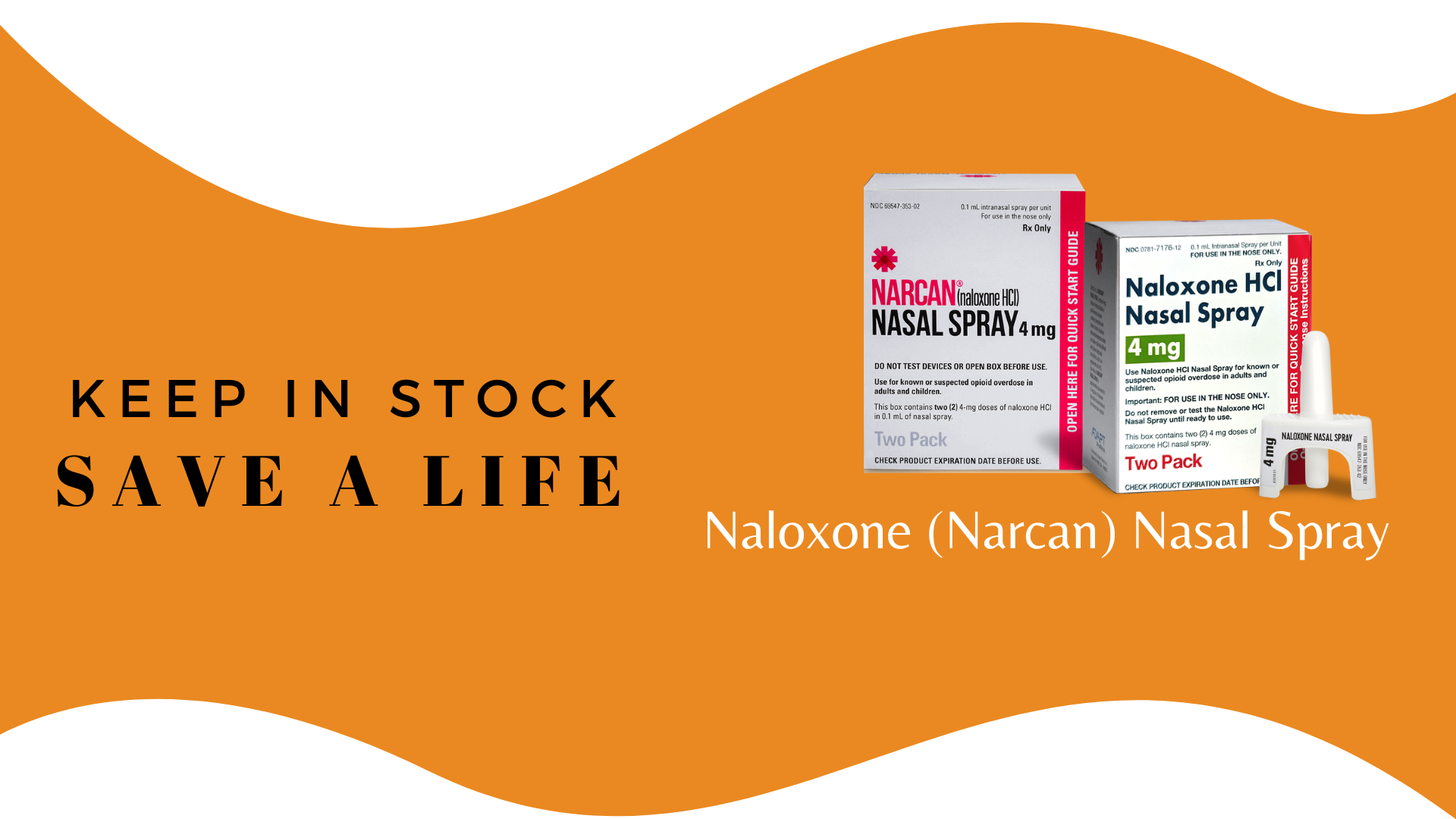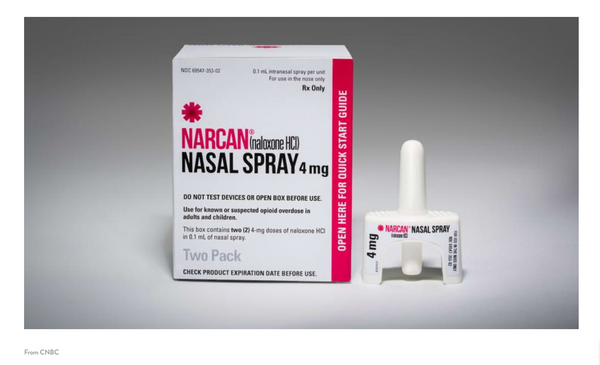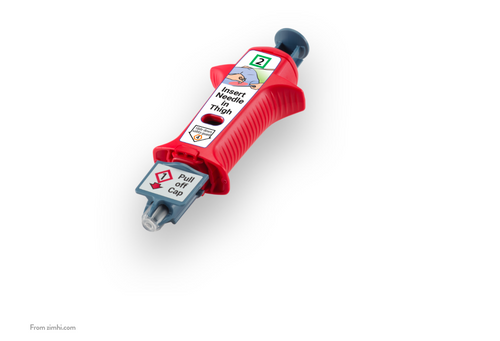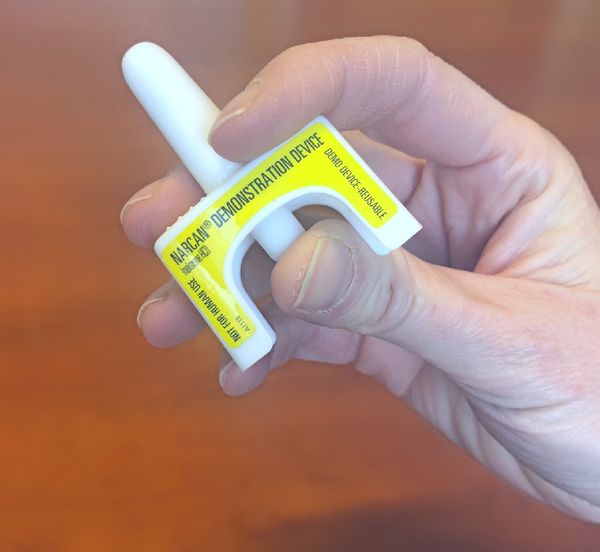
What is Naloxone?
Naloxone, also known as Narcan or Zimhi, is an emergency medicine used to counteract opioid overdoses. Opioid overdoses are increasing in frequency and are highly dangerous. Common opioids include drugs such as heroin, fentanyl, oxycodone (or OxyContin), hydrocodone (Vicodin), morphine, codeine, and other drugs. Using Naloxone on a patient suffering an opioid overdose can reverse the effects of the drug and save their life.
How to Get Naloxone
You can get Narcan from Aviva Pharmacy by following 3 easy steps:
- Visit or contact our pharmacy
- Fill out a quick questionnaire.
- Get your Narcan in the pharmacy or delivered.
How to Administer Naloxone
Forms of Naloxone

Narcan
Narcan is a nasal spray opioid antagonist. Narcan is applied through the nose as a spray, and can be quickly and easily applied to a patient. Narcan will be available prescription-free in late summer of 2023.

Zimhi
Zimhi is a high-dose naloxone treatment offered as an intramuscular injection. Like an EpiPen, Zimhi is injected directly into the bloodstream.
Still Have Questions?
FAQs:
+ Who should carry naloxone?
Individuals with friends and family who use opioids, especially with those with a history of opioid misuse or addiction should consider carrying naloxone. Individuals who are also in recovery from opioid use disorder or have a history of opioid use should consider carrying naloxone.
+ How do I recognize an overdose?
Signs and symptoms of opioid overdose include:
Extreme drowsiness or unconsciousness, limp body, pinpoint pupils, confusion or disorientation, slow/shallow breathing, and gurgling/snoring sounds.
+ When should I administer naloxone?
Naloxone should be administered if:
You witness a person collapse, the individual is breathing slow or shallow, when pupils are pinpoint, if someone is unresponsive, or any combination of opioid overdose signs.
+ Are there side effects to naloxone? If so, what are they?
Some side effects include:
Agitation, nausea/vomiting, sweating, muscle aches or pain, and withdrawal symptoms.
Side effects are usually short lived due to naloxone's short duration of action
+ How does naloxone work?
Naloxone works as an opioid receptor antagonist, which means it binds to opioid receptors in the brain that are responsible for mediating the effects opioids. The whole process is rapid, often within minutes of inhalation and results in naloxone rapidly reversing the effects of opioid in the body. Naloxone has a short duration of action and while it rapidly reverses opioid effects, it may wear off before the opioids are completely eliminated from the person's system. Thus, it is crucial to seek immediate medical attention after administering naloxone, as the risk of overdose recurrence remains.
+ How do I administer naloxone?
In the event of an opioid overdose, check to see if the individual is unresponsive or showing signs of an opioid overdose. Proceed to call 911 if you have not already to request immediate medical assistance.
To prepare the naloxone nasal spray, start by removing the naloxone nasal spray from it's packaging and attach the nasal atomizer (spray tip) to the pre-filled naloxone syringe if it's not already attached. Lay the individual on their back if they are not already in that position and tilt their head back slightly to open the airway. To administer, gently insert the nasal spray tip into one nostril, aiming it toward the back and outer wall of the nostril. Push the plunger to release the naloxone spray. Administer half of the naloxone dose in one nostril and the other half in the other nostril.
It can take a few minutes for naloxone to take effect, therefore, stay with the individual and continue to monitor their breathing and vital signs and observe for any response.
+ Does naloxone expire?
Yes, naloxone has an expiration date, and it should be periodically checked and replaced if it has expired. Expired naloxone may be less effective or ineffective at reversing opioid overdose.

